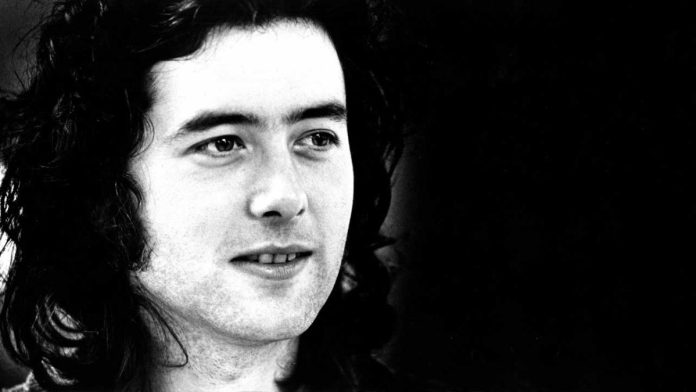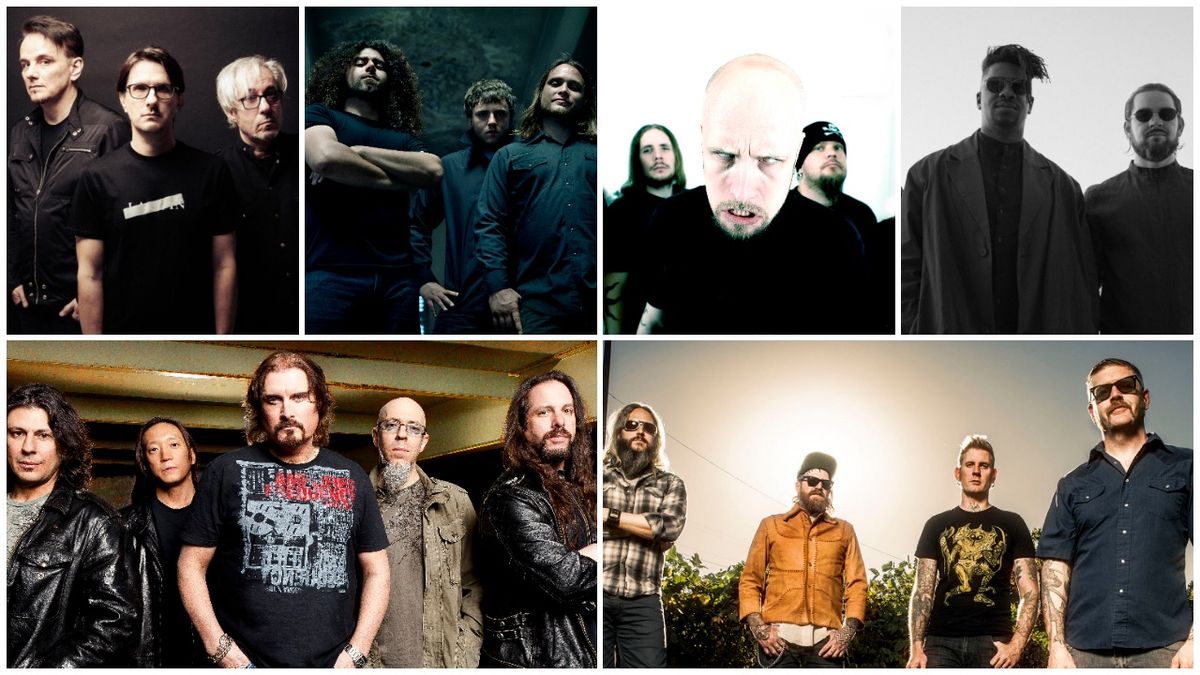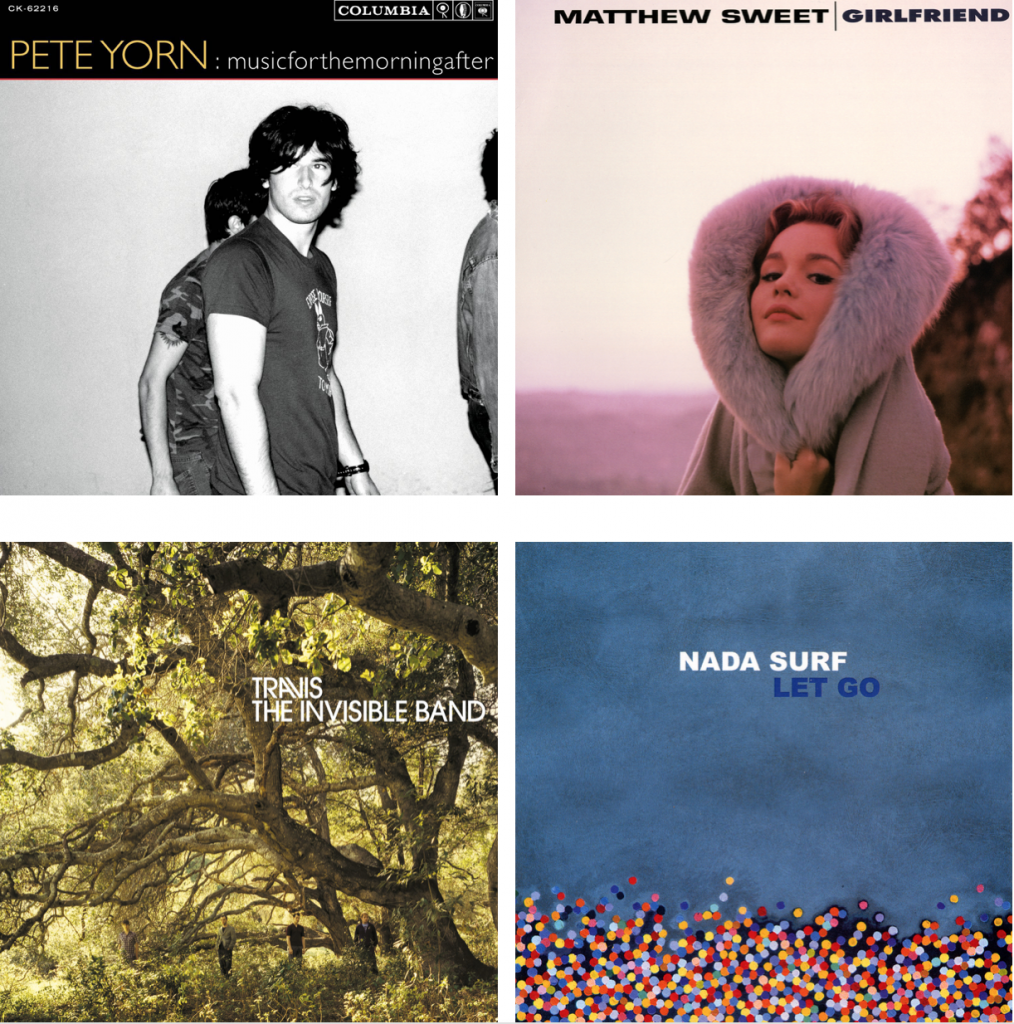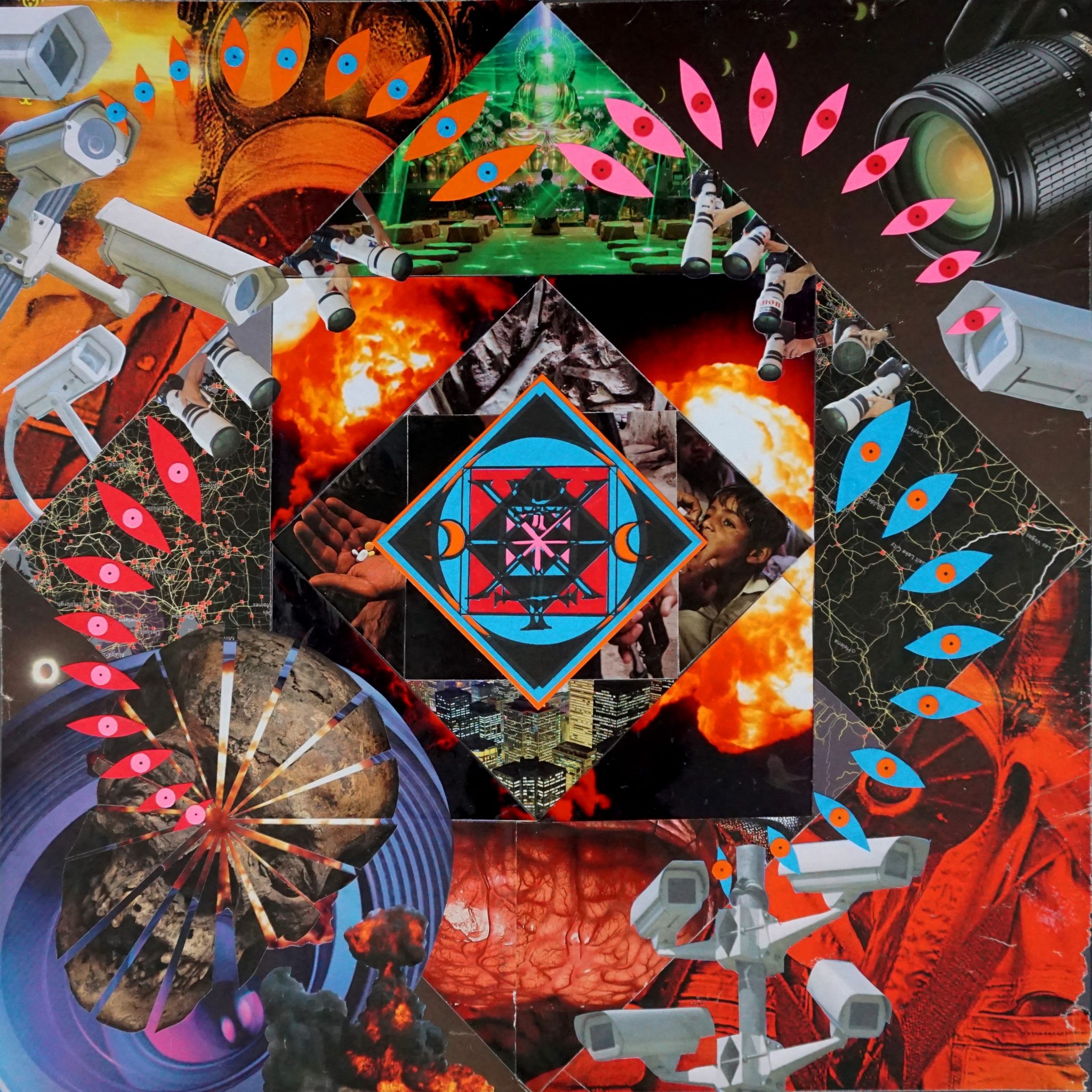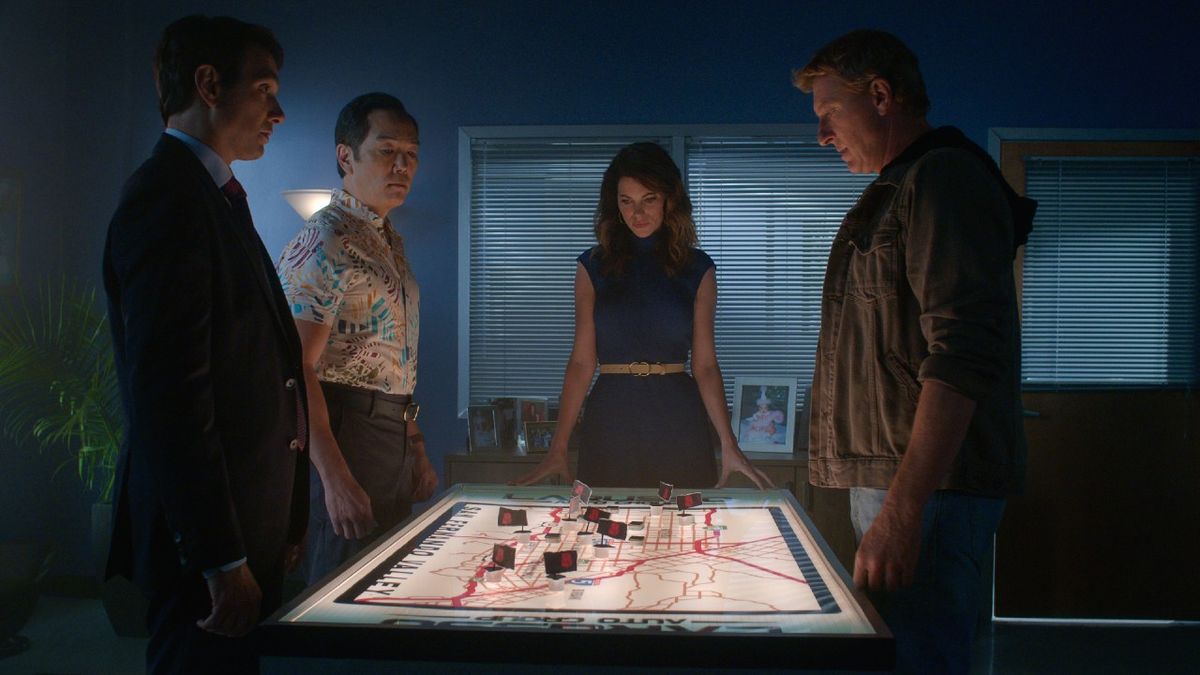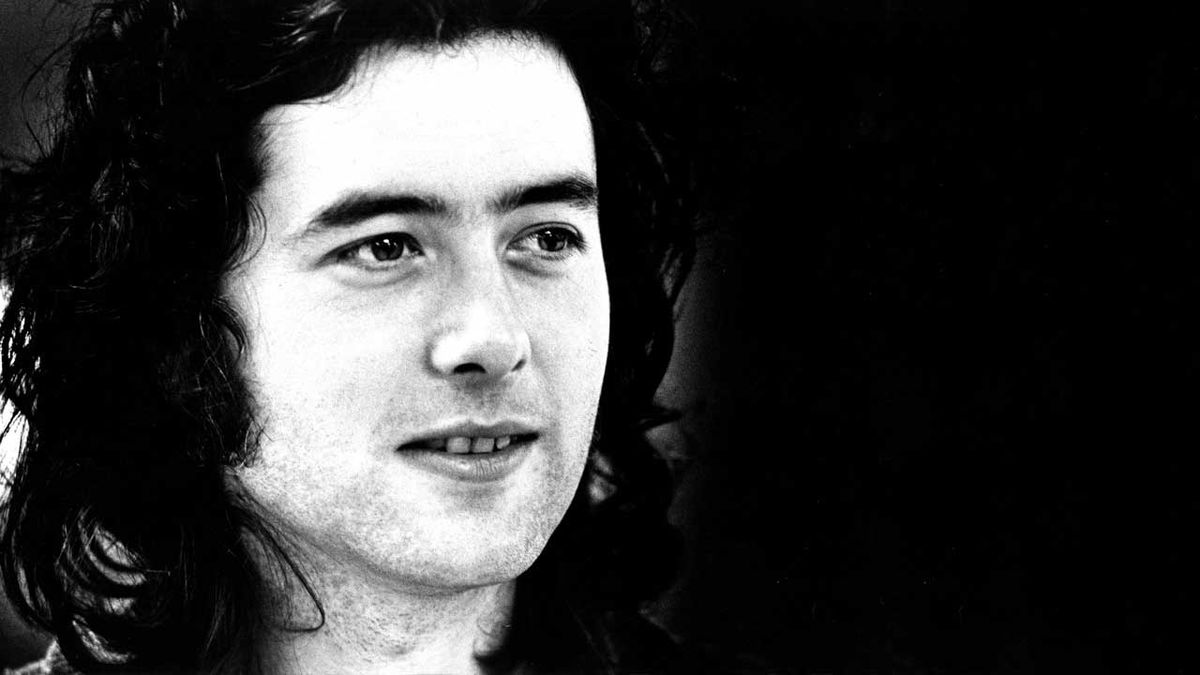
As well as being the guitar hero and co-songwriter in Led Zeppelin, Jimmy Page was also the man behind the mixing desk, the guy who produced every single one of their albums. And in doing so, say his engineers and contemporaries, he shaped the very sound of rock music.
Andy Johns (Engineer on Led Zeppelin IV)
As a producer, Jimmy was very innovative. Also, he was very thorough. He knew what he wanted, which is a very important thing for a producer. As a producer you don’t always know how you’re gonna get there but you know where you need to go. And that’s pretty much what I saw in him. Of course, when I was working with Jimmy I was just a young engineer. This was in 1973, and I hadn’t produced anything at that point in my career. I was pretty much in awe of the whole thing. I contributed as much as I could.
Whenever you’re working with a member of a band who’s a producer, like a Jimmy Page or Pete Townshend, there’s nobody in the booth with you. You’re there by yourself and they rely on your feedback: “How was that?” Jimmy was one of the few people as a musician who could take an objective overview. Most musicians get too involved and they get lost. That’s why you have such things as producers. It took me a few years to figure out why geniuses like the Stones or Jimi Hendrix would need someone there to tell them where it was at. Jimmy didn’t need anybody.
He had a vision for what the songs should be. He had his tricks that he’d worked out over the years. He was also a brilliant arranger. He was always looking for new sounds, but it was mostly his talent as an arranger. If you listen to those Zeppelin records there’s not a lot of overdubs. Even on Stairway To Heaven there aren’t that many overdubs. It’s just bass, drums, a little bit of piano, an acoustic guitar, electric rhythm now and again, and bits coming in and out.
It’s not like we do now, with four rhythm guitars and double-tracking everything else and you’ve got this bloody great wall of sound. When recording those albums, Jimmy would be in the control room with me and we’d be doing all kinds of things. The other guys either weren’t there or they’d be milling around in the studio. They knew that he was the producer. He was in charge.
Ace Frehley (Kiss)
Jimmy did it all, and that’s what was so amazing about it. When you think about Jimmy Page today, nobody was really doing what he was doing. I mean, Jimi Hendrix had producers, Eric Clapton had producers. Clapton didn’t do as much writing in the early days as Jimmy Page did. But Page wrote the stuff, he played it fabulously and he produced it. He was a triple threat. I can’t think of anybody else that was doing what Page was doing at the time.
Billy Gibbons (ZZ Top)
Jimmy’s a really fine player, from a number of angles; he’s got tone, he’s got style. He can manage a single-string lead guitar solo with speed and elegance. Massive! Jimmy’s ability to cover so many points of delivery is astounding. His background in the studio launched a complete understanding of how things work: writing, then getting it recorded, followed with the gift of taking it to the stage. Superb showman all around.
As for Jimmy as a producer, take the range of tempo and tone covered in so many different songs. There’s a real challenge in coming off an all-out thrash and dialling it down to Stairway…, all with purpose and great delivery. That’s a Page speciality. Led Zeppelin is pure, out-and-out rock’n’roll. Booming percussion, low-down bottom end, wailing vocals, and Page settin’ it up and gluin’ it together with that unmistakable style. It’ll always remain a value.
Ron Nevison (Engineer on Physical Graffiti)
Working with Led Zeppelin was very similar to The Who, except that Robert [Plant] wrote the lyrics and Jimmy Page was the producer. In terms of The Who, Pete [Townshend] pretty much wrote everything. It was all scripted out beforehand. But in Zeppelin’s case there was more of a collaboration between Robert and Jimmy.
But the thing that really struck me working with them was that John Bonham played to the guitar. A lot of drummers are stuck with the bass player. Whatever riff Jimmy would come up with, Bonham would accent where the riff was on drums. That was very interesting. I’d never noticed anyone doing that before.
Eddie Kramer (Engineer on five Led Zeppelin albums)
Page’s ability as a producer was his clear vision of what the final product should be, and his deep knowledge of music. He knew instinctively what will work and what won’t work. I tell stories about Jimmy Page and Jimi Hendrix because there are interesting parallels I find with these two guys.
They were both very clear about what they wanted in the studio. They were very clear-headed and had a focus on the end product. When they wrote a song, they knew in their head that this is the way it’s supposed to sound. They also had a very clear vision and laser-like concentration in the studio. Absolute laser-like concentration.
It was amazing. Jimmy was a real hard worker in the studio. Total focus. He was also a lot of fun. It was a tremendous challenge to work with him because you really had to have your shit together. The same with Hendrix. You had to be on top of it and try to interpret what they wanted. It’s the artist who has given us this wonderful music, and then it’s up to us as engineers and producers to reinterpret and try to help them realise their vision. That’s what we do. If we don’t do that, then we haven’t done our jobs.
In the studio, Jimmy knew what he wanted but he was very open to experimentation. He was always looking for new sounds. Any time I came up with a wacky sound he would go: “Yeah!” or “No, sorry, that doesn’t work.” He was very receptive. We were always trying to push the envelope with Zeppelin because the music was so inspiring. The music just sort of kicked you in the butt.
Elliott Easton (The Cars)
During his days as a studio musician Jimmy appears to have learned a great deal about the mechanics of record production. He’s a master of mic-ing techniques. He was really into ambient sounds, backwards reverb and distance mic-ing. They set Bonham’s drums at the end of a hallway and put the mics at the other end of the hallway. He’d get these really great sounds.
He’d also use smaller amps to get a huge guitar sound. That was all part of Page’s repertoire of studio techniques. I love Jimmy’s solo on Heartbreaker, the little break where everybody stops and he plays. It’s so weird and crazy. He just goes haywire. It always made me giggle [laughs]. Those Zeppelin records sound as huge today as they did when they were first released, and the music has aged really well.
James ‘JY’ Young (Styx)
Jimmy Page’s songwriting and production notions still resonate as strong today as they did when Zeppelin began. Apart from The Beatles and The Rolling Stones, Led Zeppelin are right there with The Who as rock’s greatest bands. And Jimmy Page is the reason for that. Certainly everyone else in Led Zeppelin was a great contributor, but Page always appeared to be the ultimate arbiter of what went on in that group.
Luke Morley (Thunder)
As an arranger and producer Pagey really excelled himself on Physical Graffiti. Ten Years Gone is a classic example of that. It’s one of my favourite Zeppelin songs. The multi-tracked guitars are amazing. As always when Pagey was multi-tracking, it had a purpose. In the 80s a lot of bands multi-tracked to get a bigger sound, but Pagey did it to add harmonies and create a mood. It sounds a bit pretentious – and I’m risking sounding like Nigel Tufnell here – but Page was painting with sound textures, lots of little brush strokes.
Nancy Wilson (Heart)
Jimmy is so underrated as a producer. When he pulls out instruments like the hurdy gurdy and all kinds of strange Eastern-sounding things, and things that you don’t know what it is, it’s really inventive stuff. Jimmy’s such a musician – capable of reading music, writing music, making string charts, writing out actual notation. There’s a lot of actual theory going on in their musicianship. But that’s part of the reason why Zeppelin’s sound is a standout.
Rik Emmett (Triumph)
I think his talent as a producer was maybe his greatest gift, and that he had enough intelligence and vision to draw out the best from Plant, and Bonham, as Led Zeppelin matured. He also gave John Paul Jones room to grow the progressive side of the band, with Mellotron parts and clever use of keyboards. And it does a bit of a disservice to John Paul Jones to overlook his feel.
Bonham’s style and sound always gets kudos, plus he’s one of those legendary rock stars who died young. But Jones was every bit the musical equal of the others. He had taste and feel and knew his role, and played it perfectly. One of the legacies of Led Zeppelin was that they had a unique, uncompromised approach and follow-through, like Frank Sinatra or the Sex Pistols – they did it their way.
I think Jimmy Page found great minds that thought alike when he eventually formed the quartet. Their personalities were a huge part of their sounds and textures. As an ensemble, they had an uncompromised sound like no other band, and I suspect it was Page who had the overriding vision.
Paul Stanley (Kiss)
What was interesting about the guitar players in The Yardbirds is how they all took their love of the blues and took it in different directions, particularly when you listen to Jeff Beck and Jimmy Page, who seemed less purist and more adventurous. It’s interesting to note that both The Jeff Beck Group, which he formed after his stint in The Yardbirds, and Led Zeppelin came about at virtually the same time.
Led Zeppelin’s first show as Led Zeppelin was October of 1968, and they were rehearsing before that. The Jeff Beck [Truth] album came out in August ’68. So both in a sense were incubating at the same time. It’s interesting to see how much broader and wider Jimmy Page’s vision was of what was possible. Jimmy understood the complexities and subtleties of producing and arranging and brought that to his band.
As brilliant as Jeff Beck was, that’s something he couldn’t do, whether it was the limitations of the people he played with, which he himself has said he found frustrating, or just the fact that consistently Jimmy Page turned out to be a visionary. Jeff Beck had to use his phenomenal guitar talents to try and compensate for a lack of interesting or original material.
The great thing about somebody like Jimmy Page is he brought a lot of influences and flavours to the pot. He was able to realise that for something to be heavy didn’t mean that it had to be crude; that part of what makes something heavy was the depth and the intricacy or the lightness. Here’s a guy who knew Celtic music, rockabilly, American folk and international music forms, besides the obvious admiration for Robert Johnson and everyone who followed in his footsteps.
They [Zeppelin] were all fans of Sandy Denny and Fairport Convention. He understood that for something to be truly bombastic it had to have depth ,and depth doesn’t come just from cranking up an amplifier. The idea of being able to paint sonically, to paint with light and dark and to see things cinematically, almost so that your canvas is large and your colour choices – you’re not afraid to use the whole palette.
That’s what makes those songs so dramatic. If How Many More Times was just one guitar cranked it wouldn’t have anywhere near the drama that it has. To a listener who doesn’t really understand what they’re listening to, that’s what it might sound like. But in fact it’s so much more. And that becomes evident when you hear somebody trying to emulate it by just taking a guitar and cranking it up through an amplifier.
Steve Lukather (Toto)
Jimmy was a master producer. Look at the musicians he had to work with in Zeppelin – everybody was a giant. Jimmy had that old-school background with John Paul Jones as a studio guy. The experience he had in London working with all the best engineers and producers was put to good use in the studio when he produced all those Zeppelin records.
He had a sound in his head that he was able to translate from his brain and soul. He knew exactly what he wanted his band to sound like. As a producer, he brought ambient recording to rock’n’roll. Also, Jimmy would orchestrate his guitar parts with layering and overdubs and it would create this wall of sound. Sonically he came up with some of the most amazing guitar tones that still hold up to this day.
You gotta remember that at that time everybody was wanting to one-up everybody else. It was a great time for rock music. Everybody was listening to everybody else. It made the music better for everyone. It was healthy competition and everybody respected each other.
Joe Satriani
We can all go out and get ourselves a Les Paul and a Marshall, but how Jimmy gets that sound no one knows. It’s in his fingertips. The other great thing about Jimmy Page is probably the biggest thing, and that’s as a writer, producer, arranger and band member, he’s almost in the field all by himself.
He’s just on the mountain top for being so creative in so many aspects of rock music. Just look at those great Led Zeppelin records and how he chose to play and record himself. It’s just amazing. He created a style and a genre, and we all kind of follow it.
Tom Hamilton (Aerosmith)
Jimmy’s production ideas back then went far beyond what anybody else was doing. He was a visionary. He had this thing in his head of having music that would be lush and juicy but much more powerful. The drums would speak. They’d be much more up-front. Back then the proper recording techniques for drums were to dampen them down as much as possible to control the frequencies that were coming out so it didn’t interfere with other instruments.
But Jimmy knew how to open it up and give it more space, to the point where you could hear the kick-drum pedal squeaking or the hi-hat rattling back and forth. Jimmy’s talents as a producer and songwriter are almost beyond his technical prowess as a shredder. There are other people who might have even smoother or faster technique than him, but he was the whole package.
He had as much understanding of the studio as he did of music. He created a whole new way of making records, and to this day people are still trying to make records that have the power of those old Zeppelin records.
Joe Bonamassa
It’s amazing how good he was in the studio. I don’t think Jimmy gets the credit for being an extraordinarily gifted producer. We all walk into the studio with a blank tape, and it all depends what we walk out with. And Jimmy walked out with some insanely good music. And you can hear that as Zeppelin became more successful he became more confident, because he knew their fans would follow them wherever they went. That kind of freedom is just awesome.
The thing I always got from hearing early Led Zeppelin stuff was a feeling of ‘I’ll show them’. They were trying out new sounds that had never been recorded before. The fact is that you’d have a hard time today getting many of those sounds in the studio. I don’t know what they were doing or how they were doing it, but the effect is hauntingly beautiful. Especially the violin-bow stuff. That’s just incredible. You listen to it today and you still go: “Wow!” It’s so stark and frighteningly original that you just can’t help but take notice.
I remember watching the violin-bow sequence on The Song Remains The Same – that Madison Square Garden concert – when I was a kid and thinking: “I didn’t know you could do that with a guitar.” And then there’s that bit where he using the Echoplex and it’s like he’s throwing the notes off the end of the bow. For all the kids in the audience it must have been like a surreal, out-of-body experience. And that’s what it is, entertainment. I mean, we are still in the entertainment business.
Ritchie Blackmore
As I’ve said before, Jimmy Page has an incredible overview of what’s going on within the context of a band. He doesn’t just play a solo as most guitar players do. He hears the whole arrangement of the song and incorporates a lot of colour with a producerlike awareness.
So with Led Zeppelin he is a producer as well as a songwriter as well as a stage performer – and as well as a guitarist. I’m glad to see that Jimmy Page has made a big name for himself, as he is one of the greatest talents around.
